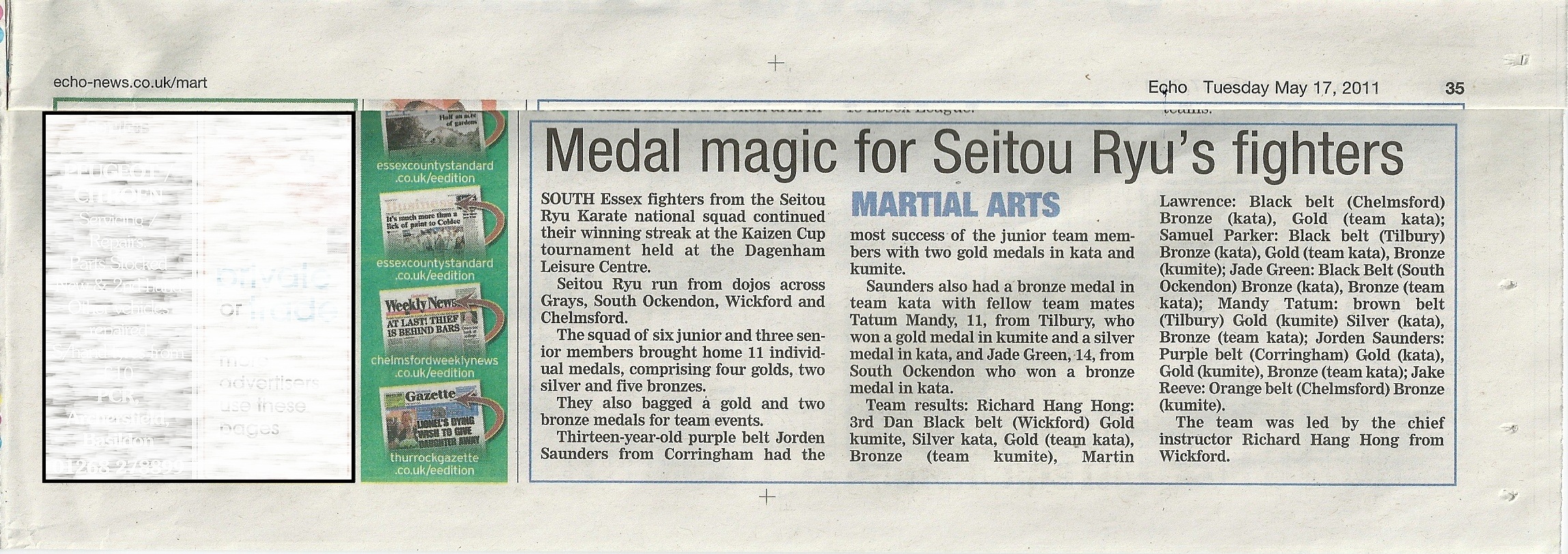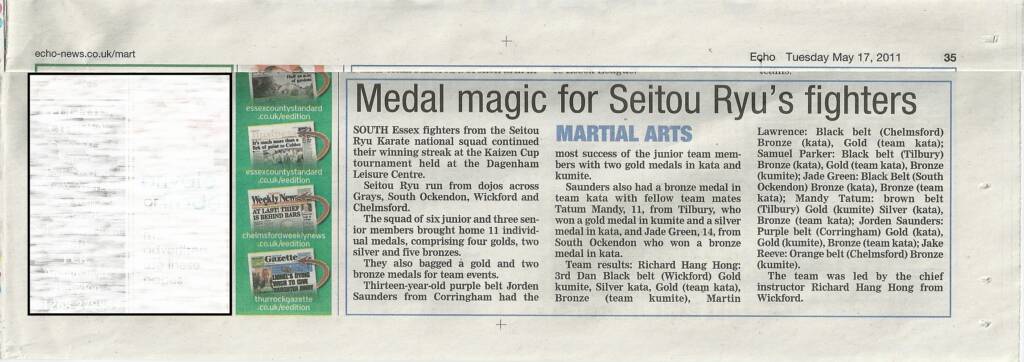By Mick Simmonds
So, you’ve taken the plunge and joined a karate club and whilst the first few weeks are confusing, you find that it’s an activity that you find yourself looking forward to the next class that you can attend.
A few weeks/months down the line the ‘karate bug’ starts to really kick-in and you find that you are talking ‘karate’ with anyone at home who will listen and find yourself going around your day-to-day business with little karate images in your mind’s eye, thinking now what did Sensei say.? Hopefully at this stage you increase the classes you attend each week and start training with different Sensei’s within your club and make new contacts/friends in the greater karate club family , but you still find that you crave more information at different times of the week, so what do you do.? With the easy access of the internet you’ll start looking on Google or searching YouTube video clips or similar and be totally amazed at the sheer volume of material that is out there waiting to be read or viewed, but beware all that you see may not be what you need!
So, you’ve managed to wade through the quick-buck material, discarded the impractical applications etc, and still find that there is a huge amount of available material due to the variety of karate styles that are practiced throughout the world, and those ‘styles’ that are the more honourable all have a valid place in the greater ‘karate world’ – But it may not be the same style that you are training in, which will then waste your time & efforts by learning a style that will not be used in your dojo!
By talking with others within the dojo you can be guided to a fantastic array of reading materials ranging from books or magazines covering subjects such as the History/ Origins of Karate, to books dealing with self-defence, to bunkai to auto-biographies of some of the masters that have gone before us on the same journey we are treading, to DVD’s covering a variety of kata and other topics relevant to your style usually linked to the governing bodies that reputable clubs are affiliated to.
We practice a style of Karate that is predominantly of the Goju style, but blended into this is elements of the Shotokan style, which means that you will be directed at different times during your journey to the literature etc, that is most relevant to you at that time. Be that from Goju and our affiliations with Seiwakai and JKF Goju Kai to authors such as Sensei Iain Abernethy, who writes on many subjects including Kihon , Kata, Bunkai, Grappling etc, as does another Sensei Kris Wilder.
Additionally each Sensei within Seitou Ryu has a copy of the official JKF Goju Kai instructors manual which covers areas ranging from basic kihon through all the Goju Kata which can be referred to upon request by the individual.
Within the Shotokan style there is a great array of literature such as Best Karate by M.Nakayama or various titles by Sensei Enoeda and numerous others, then from the origins of Karate a must read would be Karate-do: My Way of Life by Gichin Funakoshi
Once you have the correct style sourced, usually by talking with your Sensei for guidance, practicing at home is a great thing to do, but can never replace the same conditions you will have in the dojo, be it space, time, constructive criticism from other students and possibly mostly importantly the interaction with other karateka to practice those techniques on, as there can only be limited benefit in this regard to training on your own, and when you get to actual self-defence and kumite practice. Escaping from a wrist/head-lock or blocking a kick made by a shad- ow, can never compare to the ‘live’ training you will get from a partner in the dojo.
Be inquisitive, explore as much as you can the variety of information available and practice, practice, practice! But be aware that unfortunately like in all other as- pects of life there are un- scrupulous individuals who in the karate world are col- lectively known as ‘McDojo’ people who are just con- cerned with selling a brand, a label. These individuals will for a price (upfront of course) provide you with material that when you get right down to it can prove to be irrelevant to your own training or totally impractical in application or use. It’s not a bad thing to explore the various areas of karate, in fact we encourage all students to do so. Just make sure that what you’re looking at is actually going to be useful. Ask your Sensei for books they have read and would recommend. Online there are 2 great resources just a click away; our own YouTube channel and iDojo.com.au, Shihan Rod Martin’s site which has an abundance of useful training videos that you can download and keep. We will be adding our own training videos to iDojo sometime in 2012 so you’ll have even more reason to go on there.


